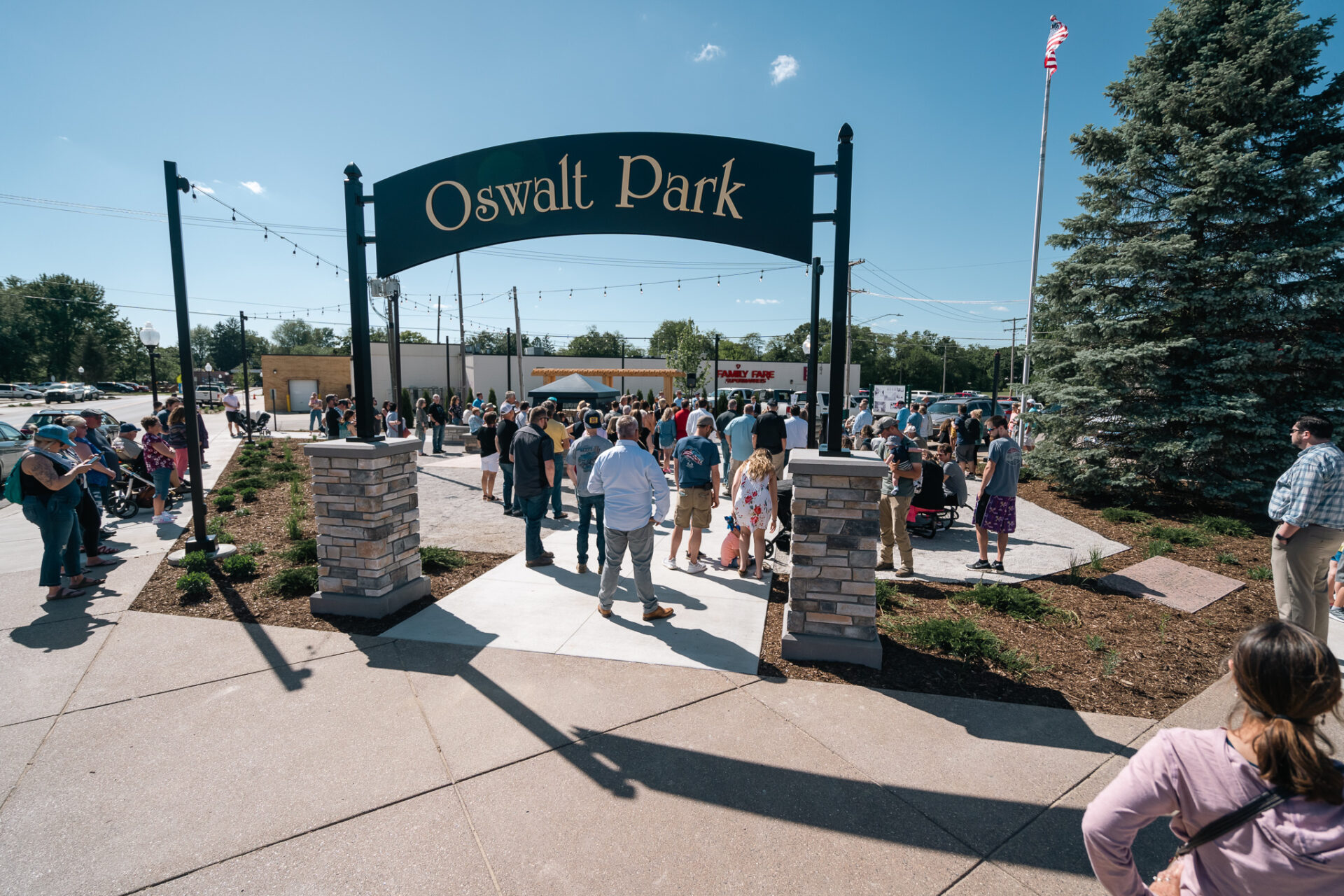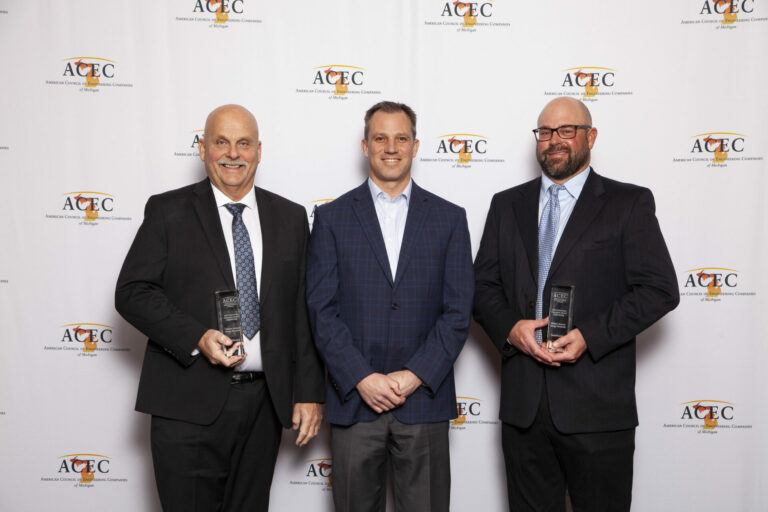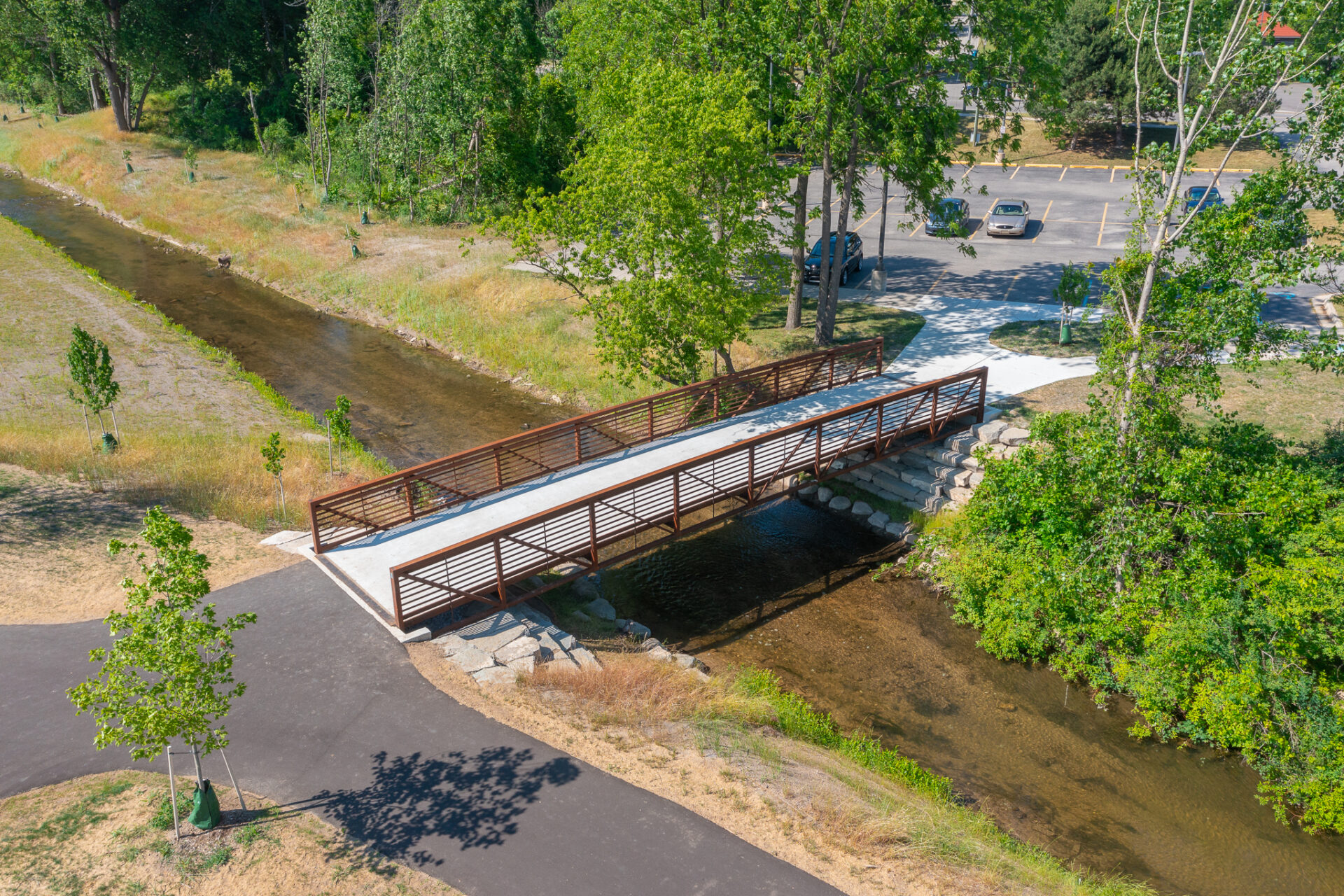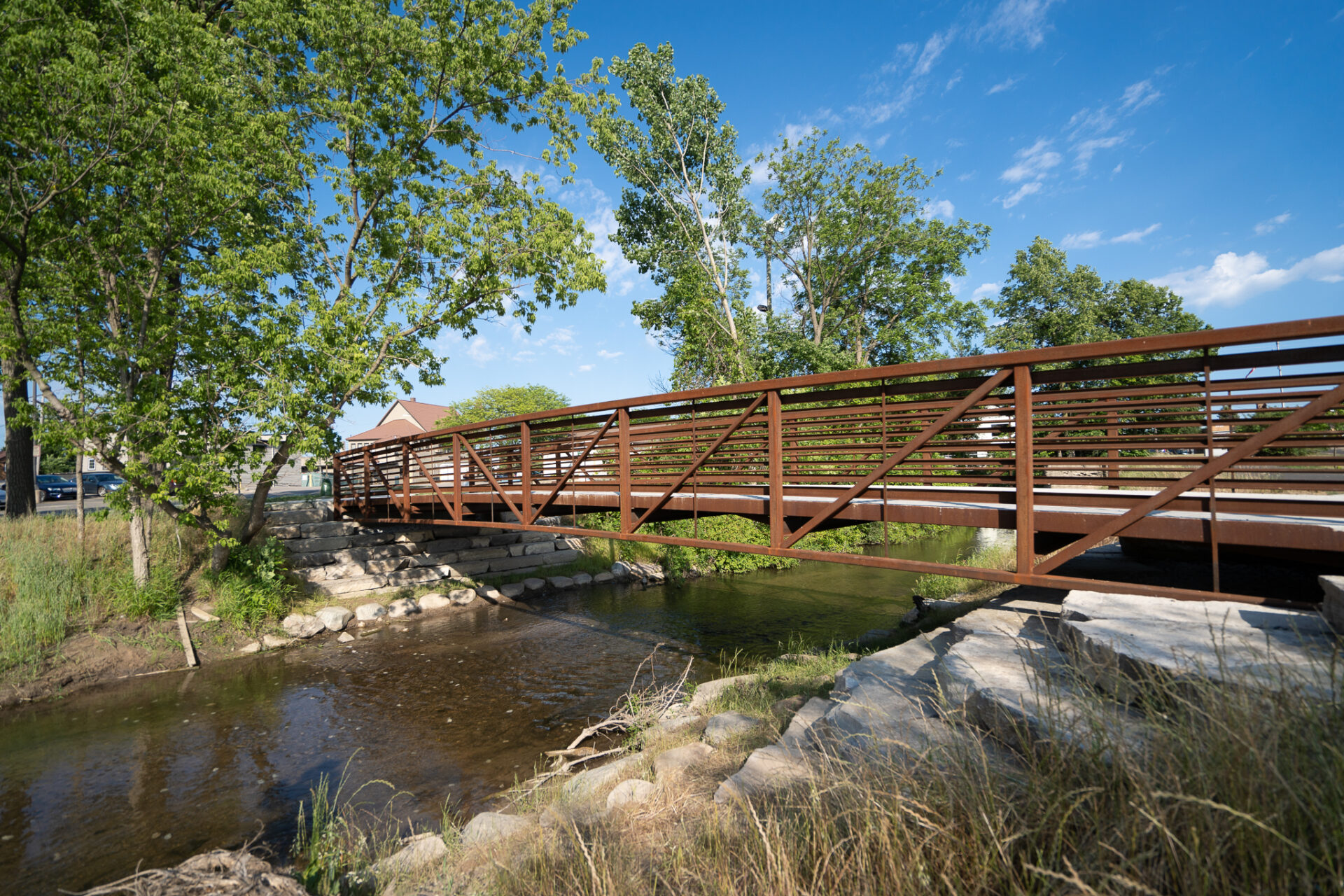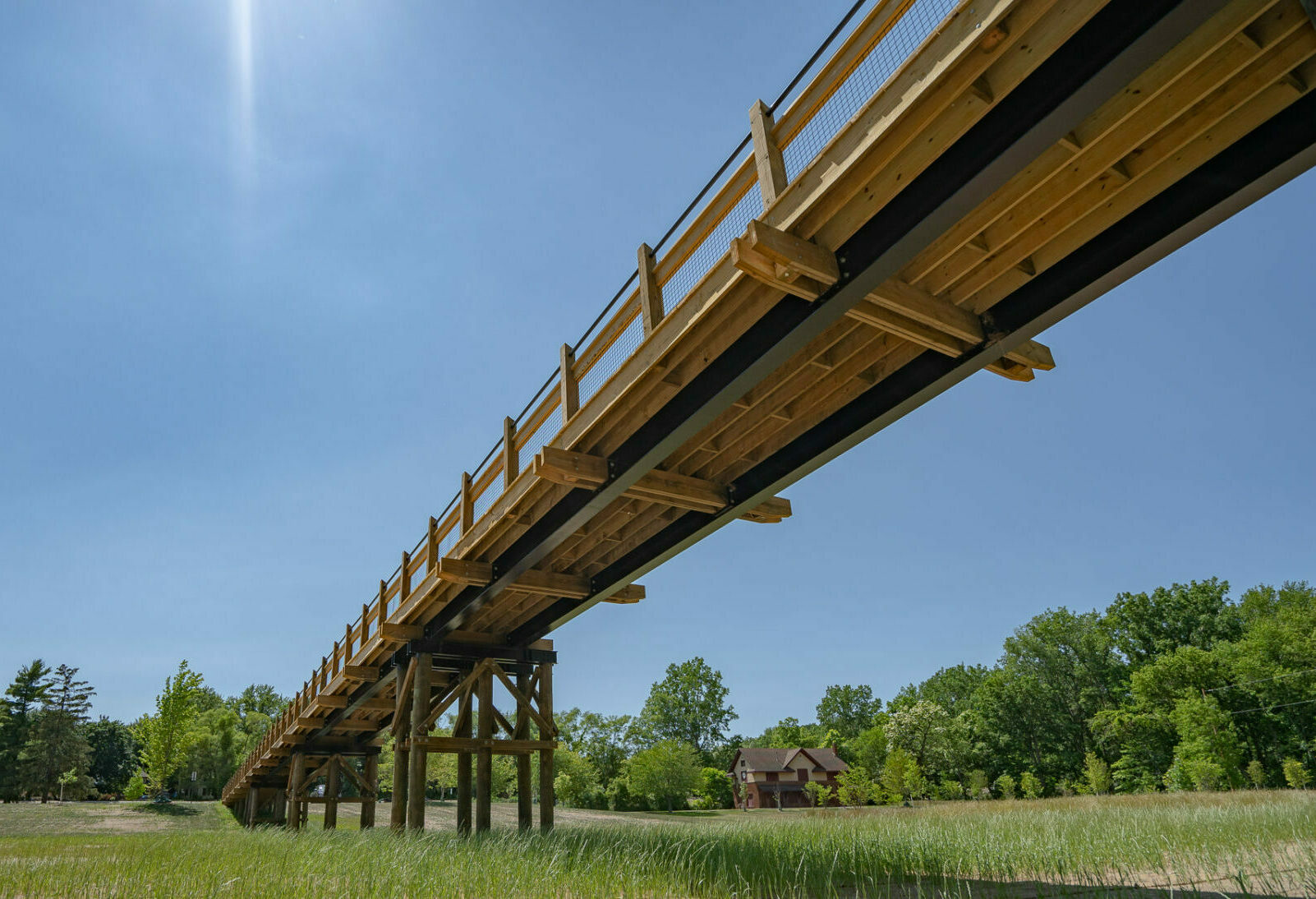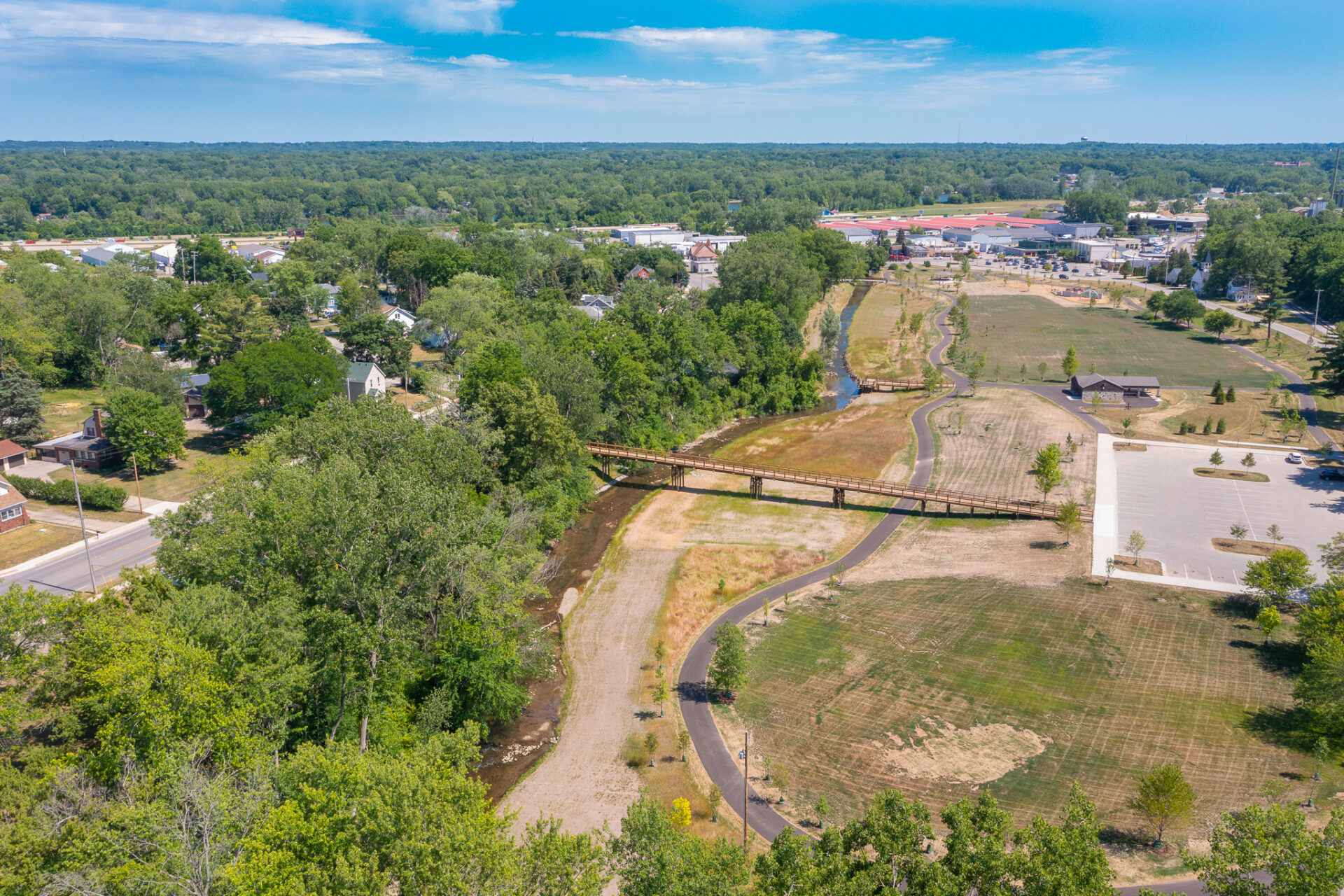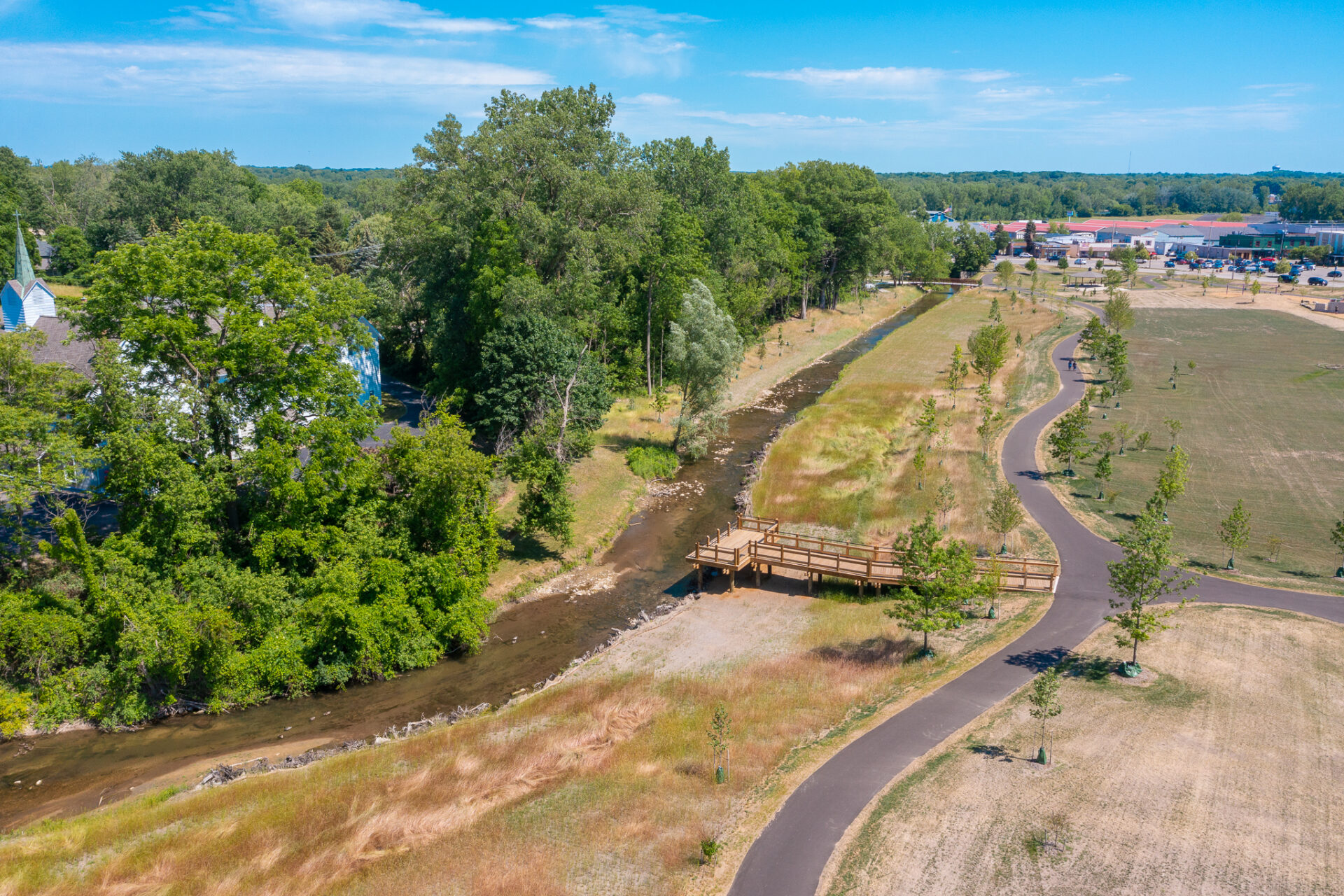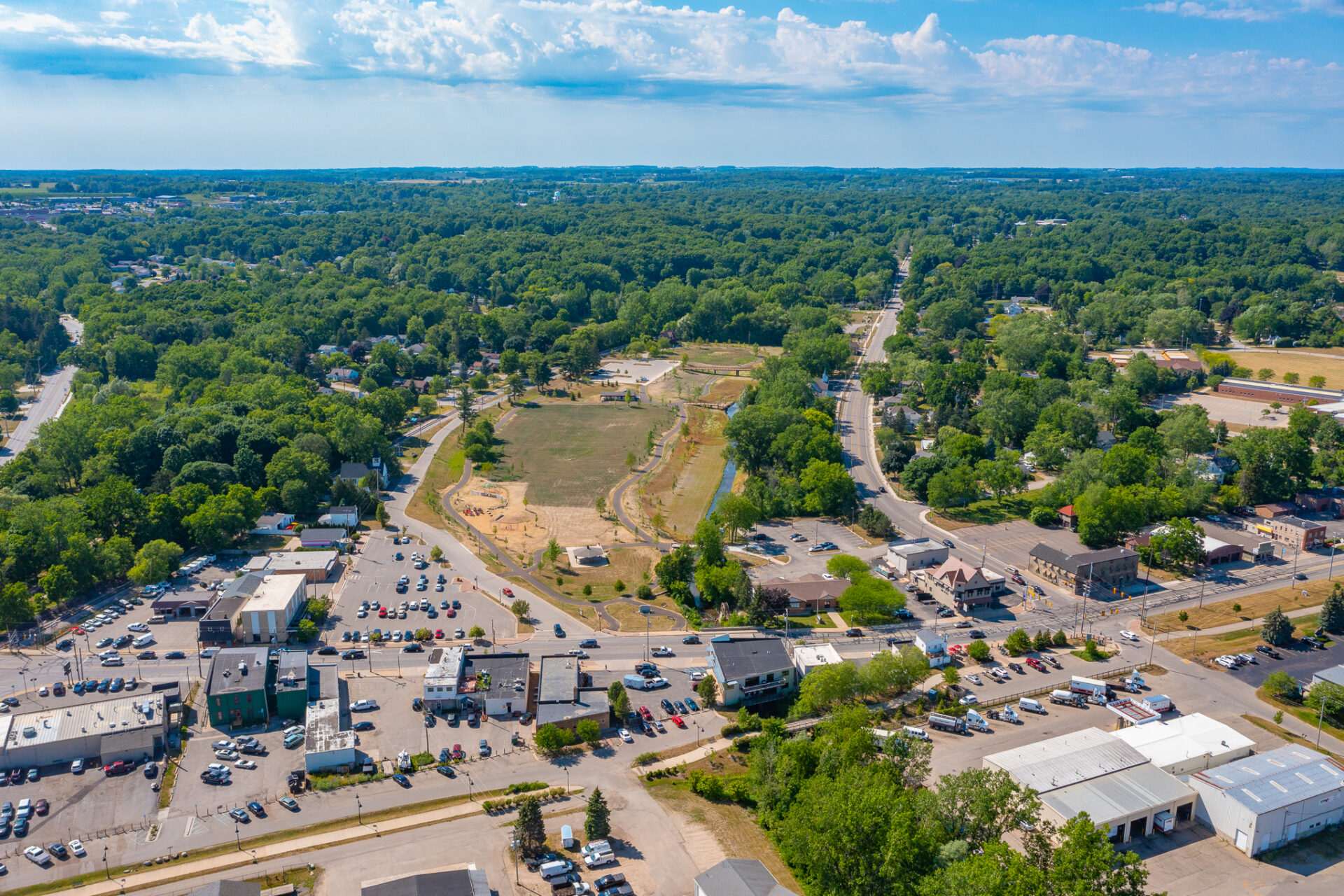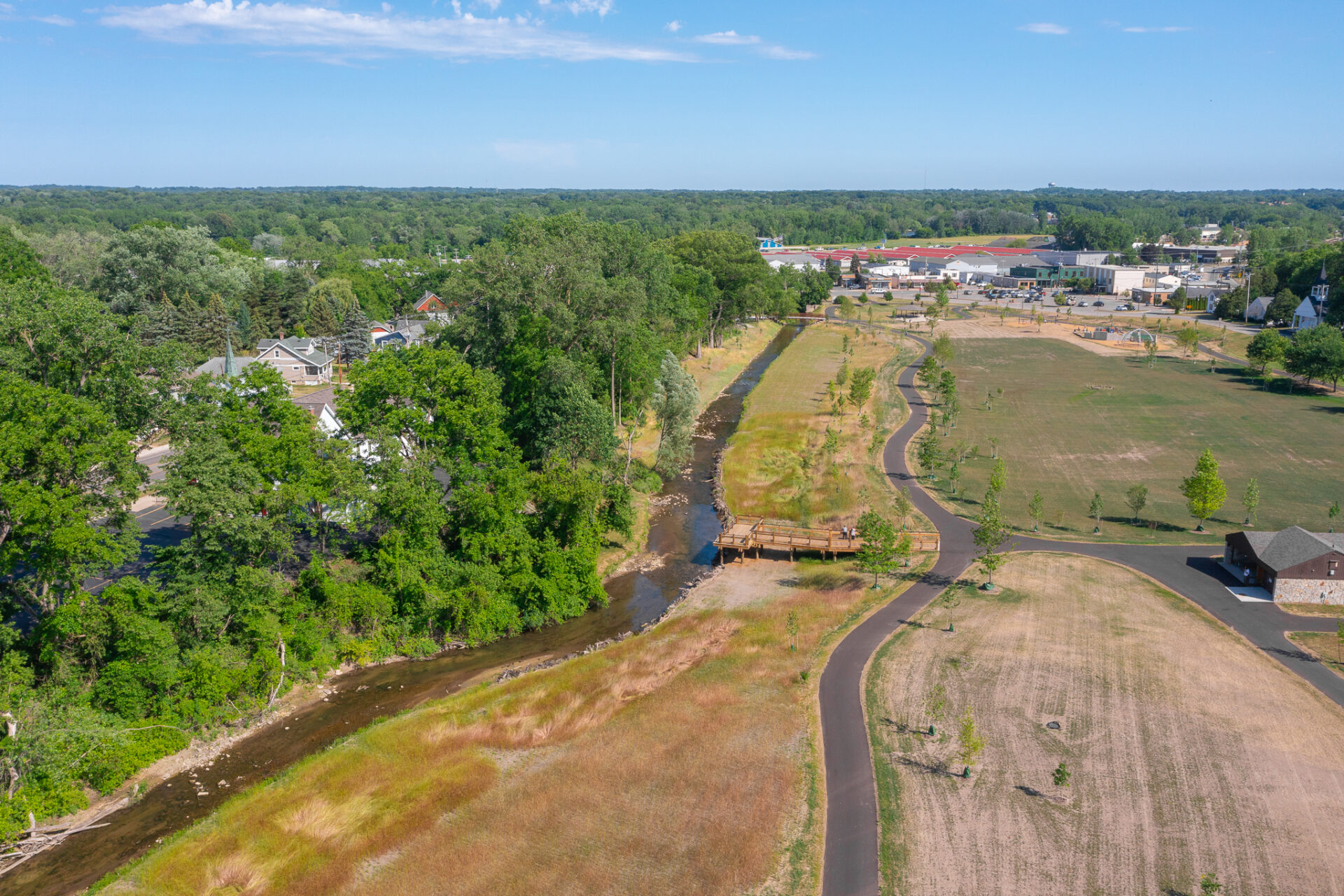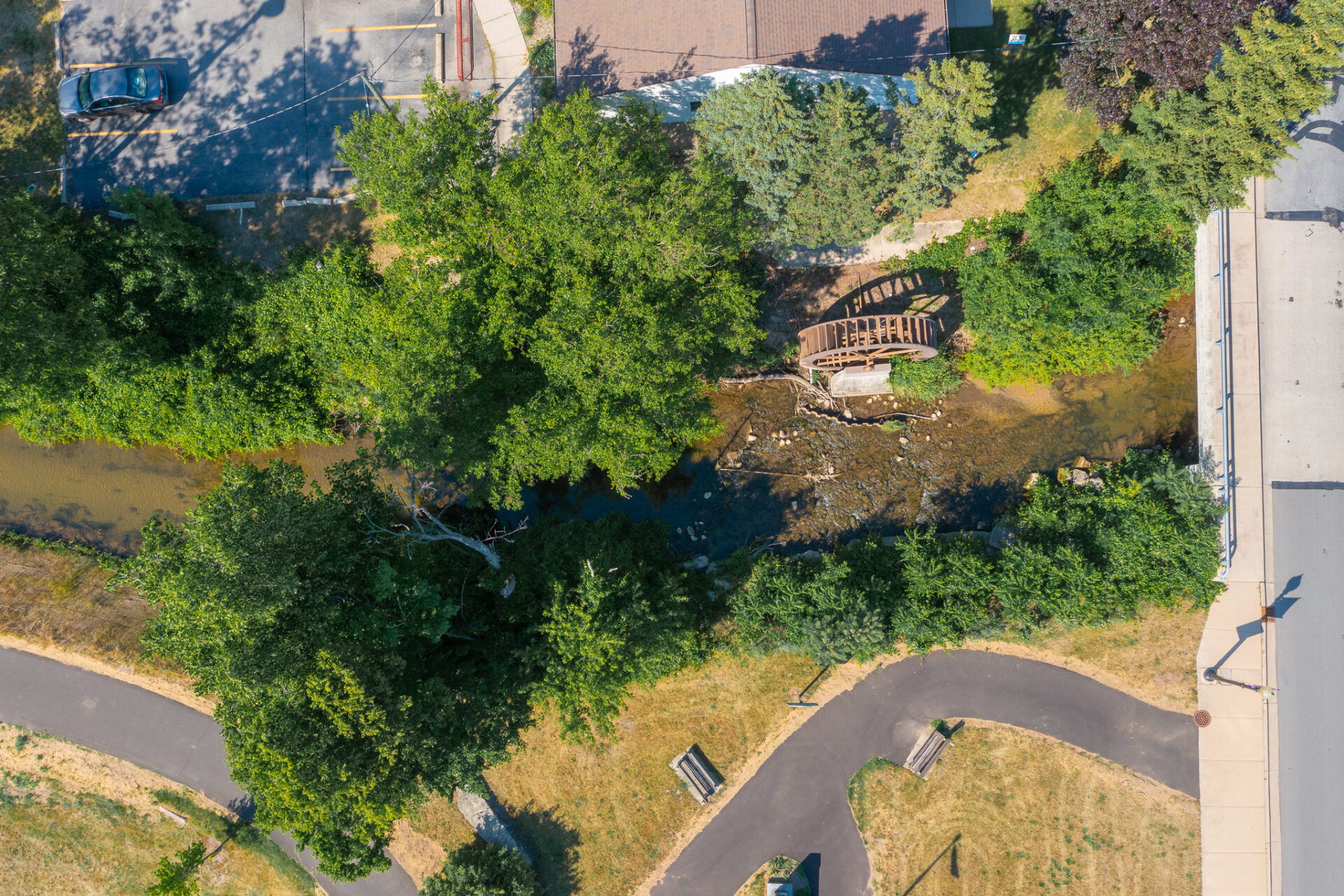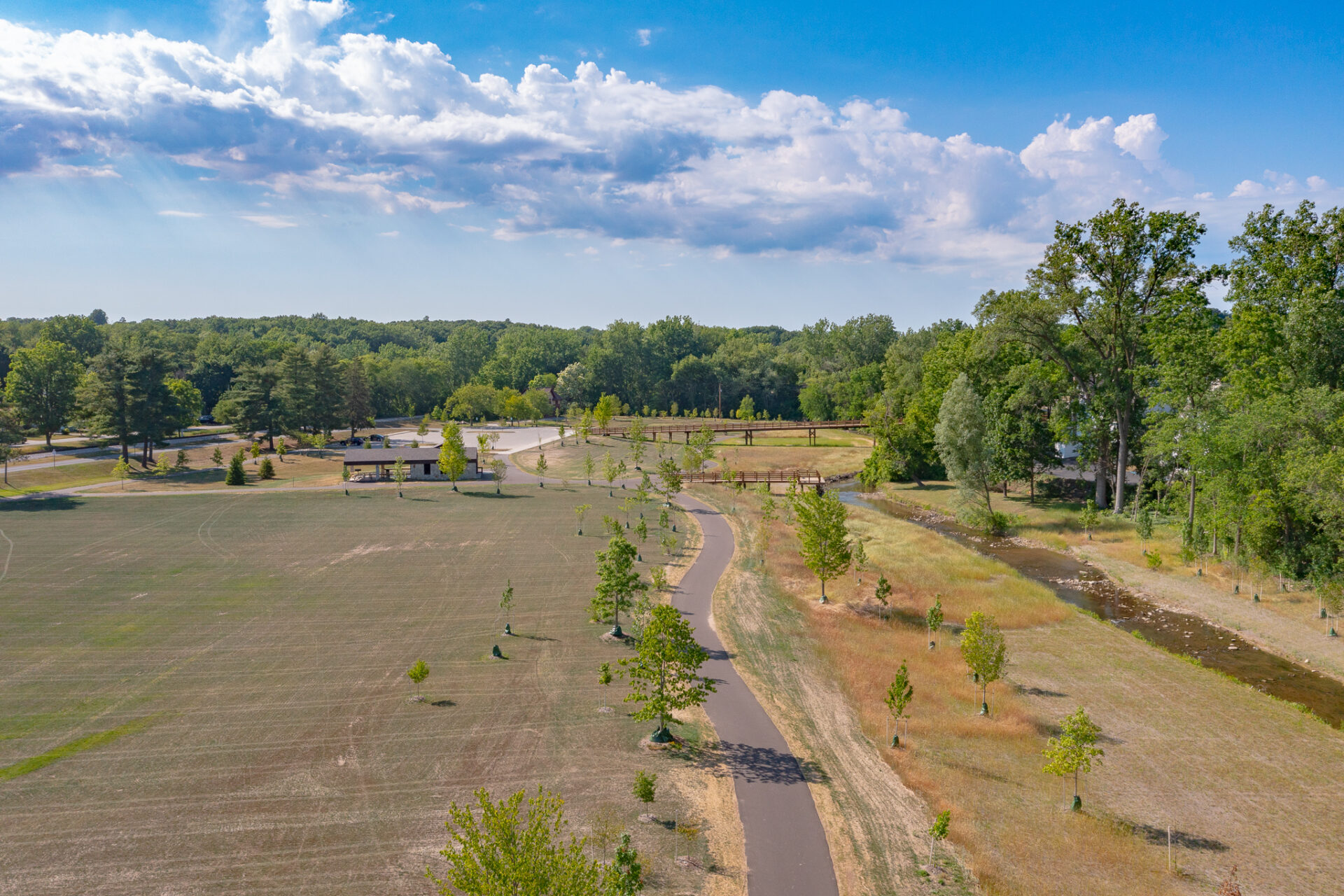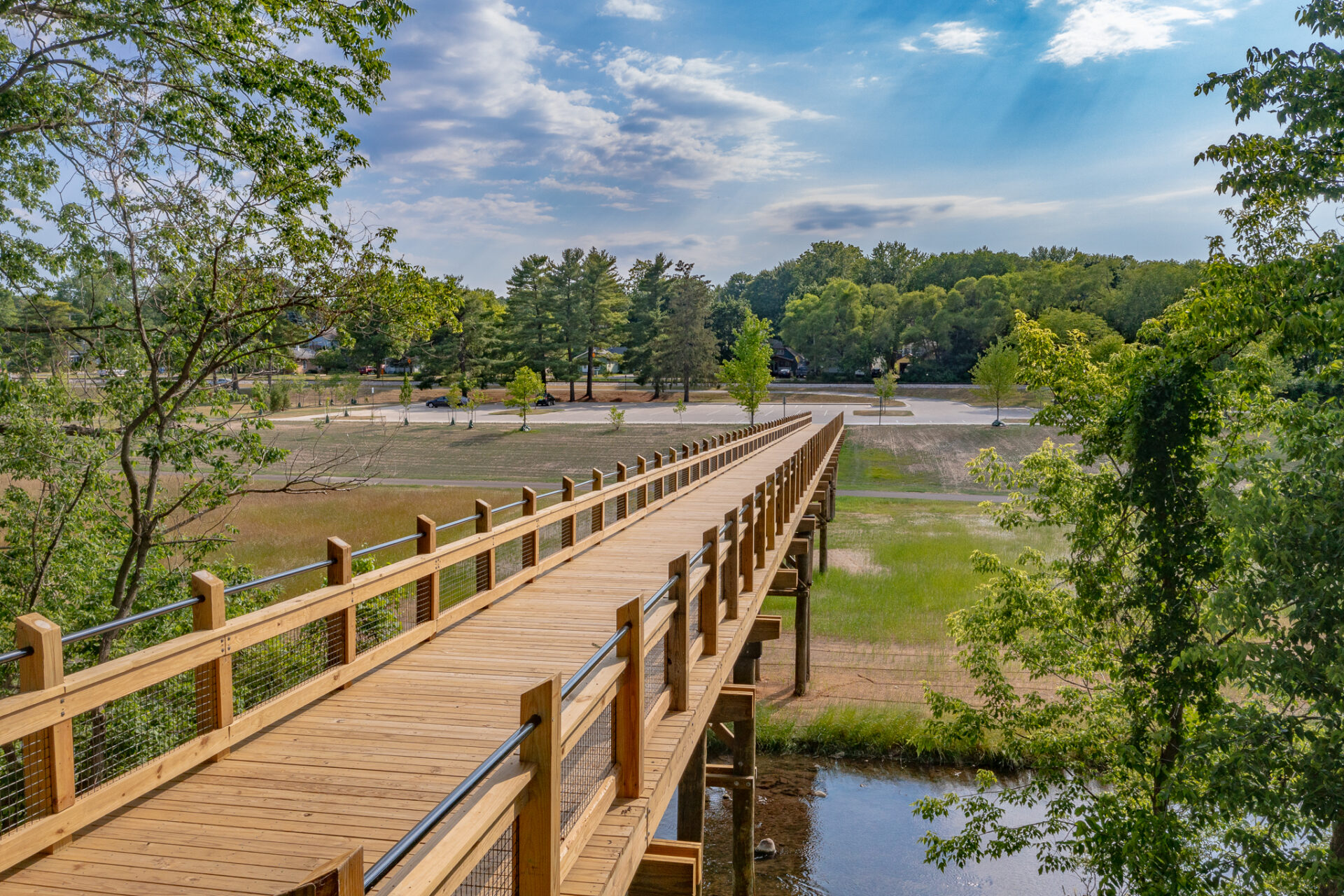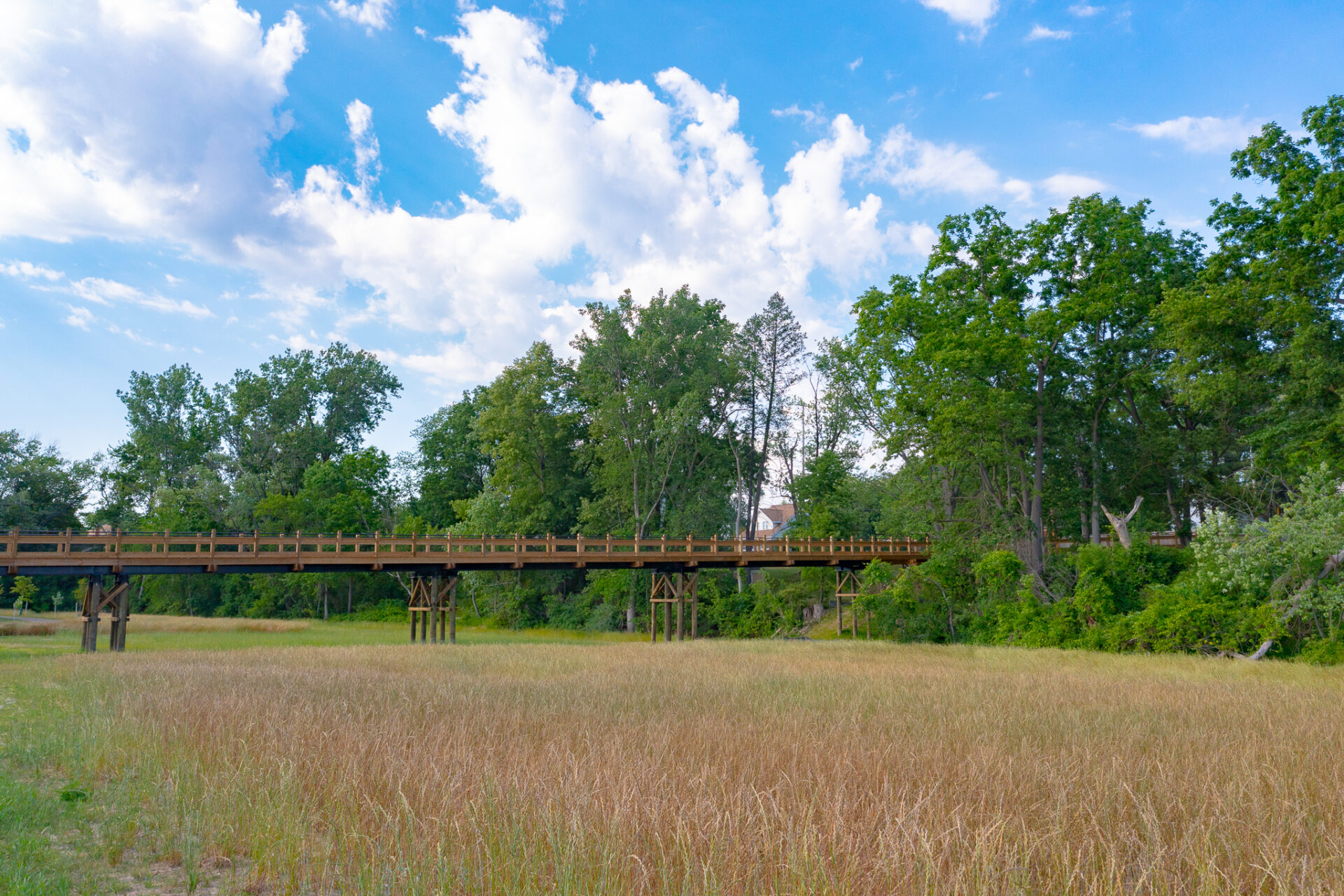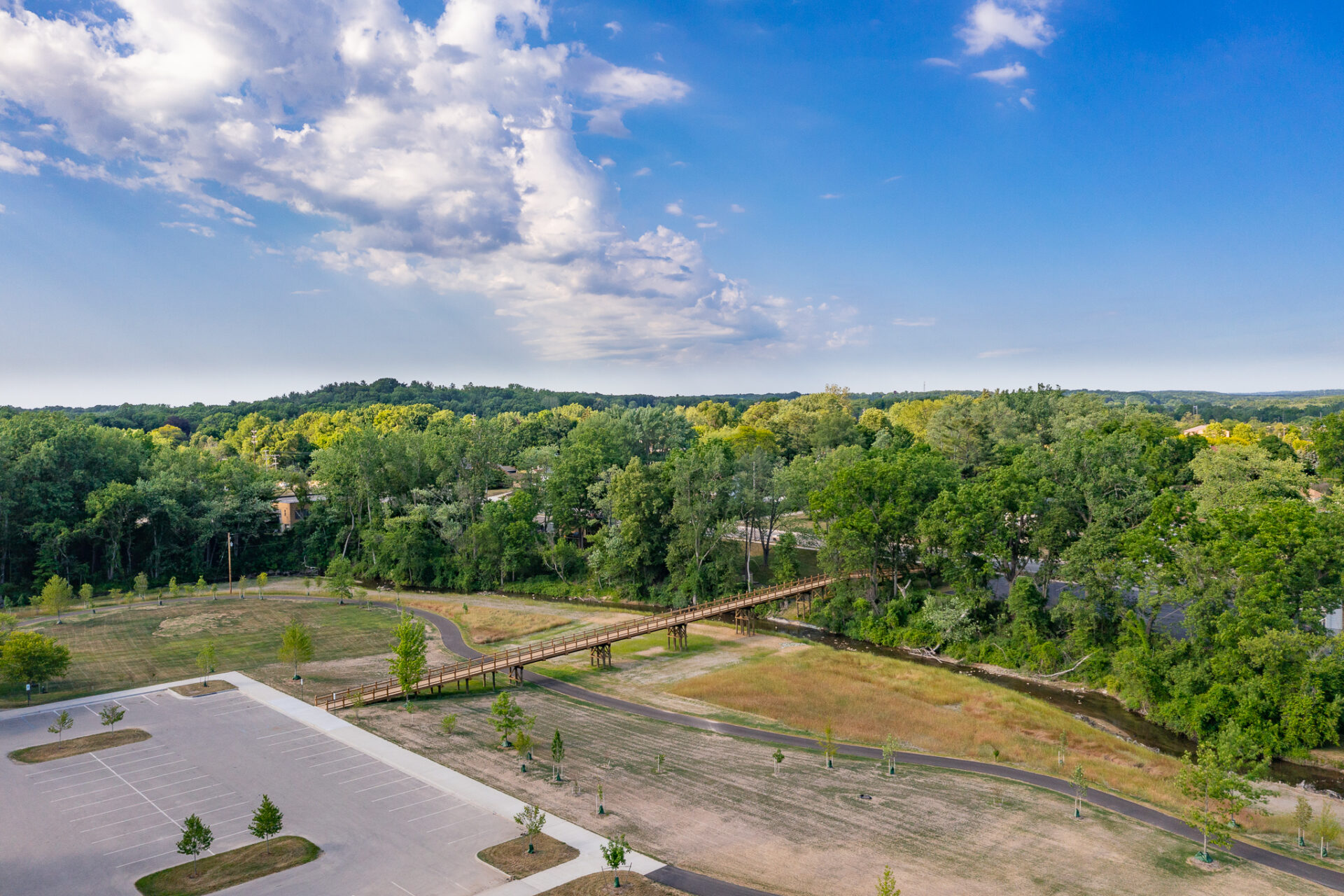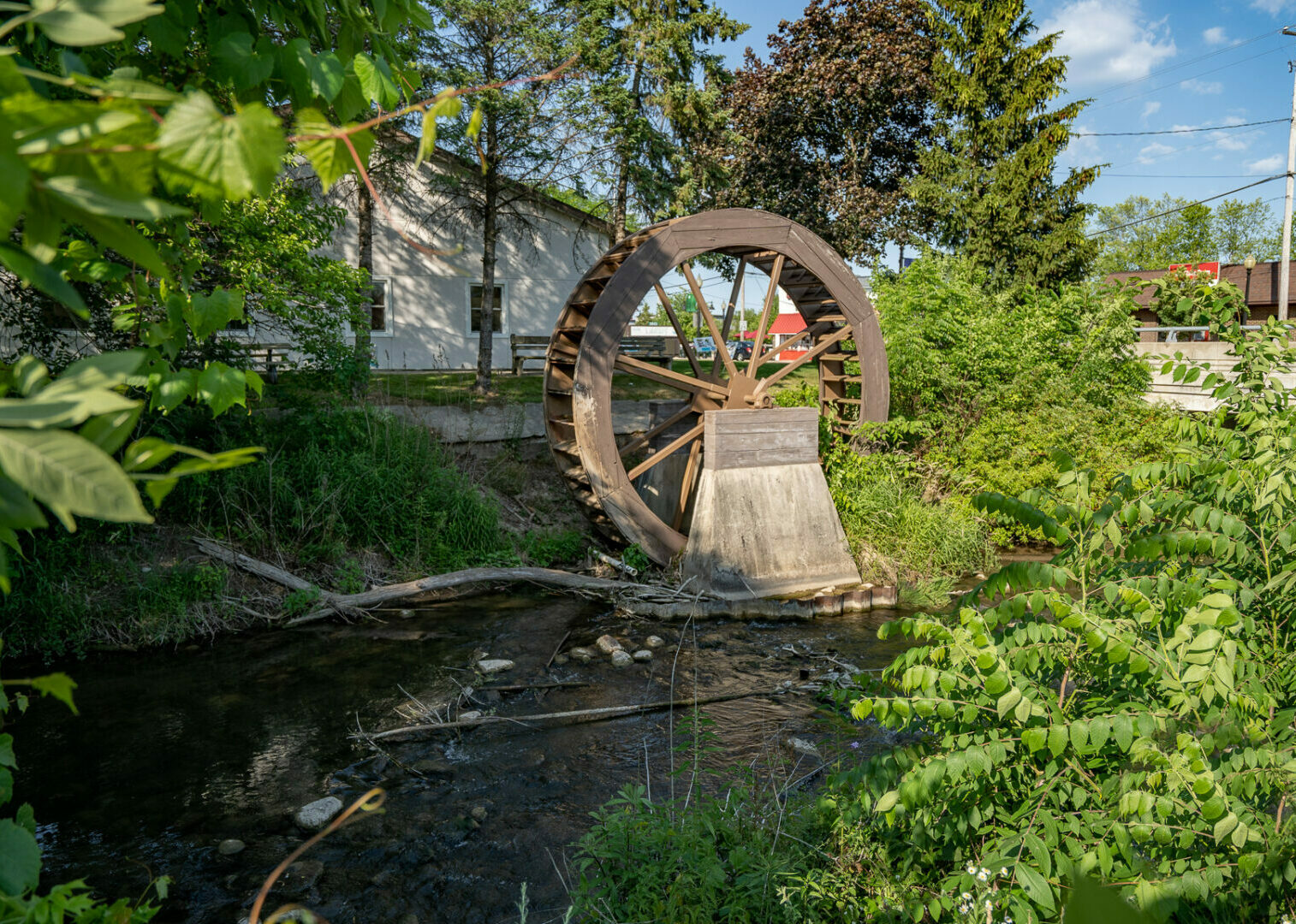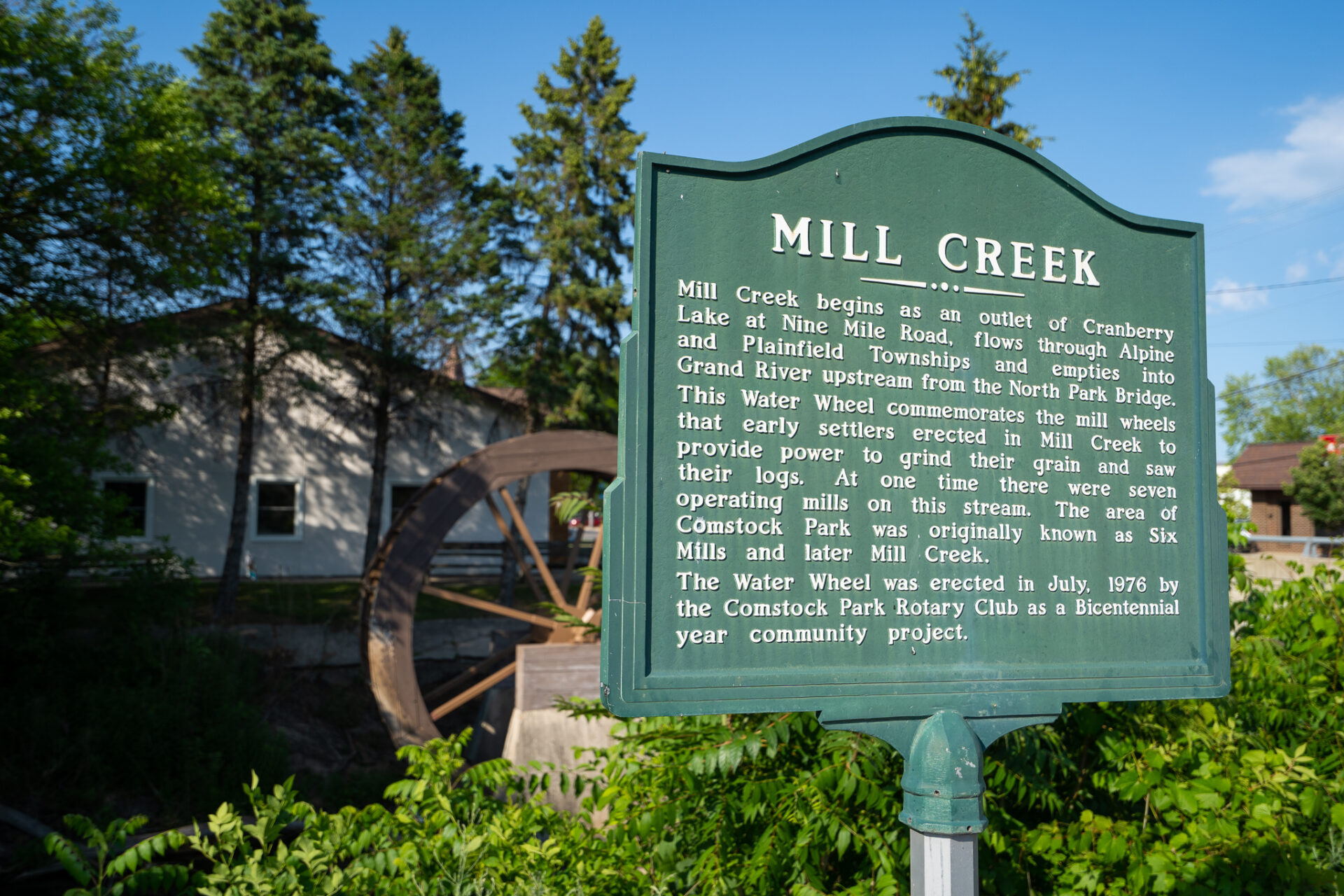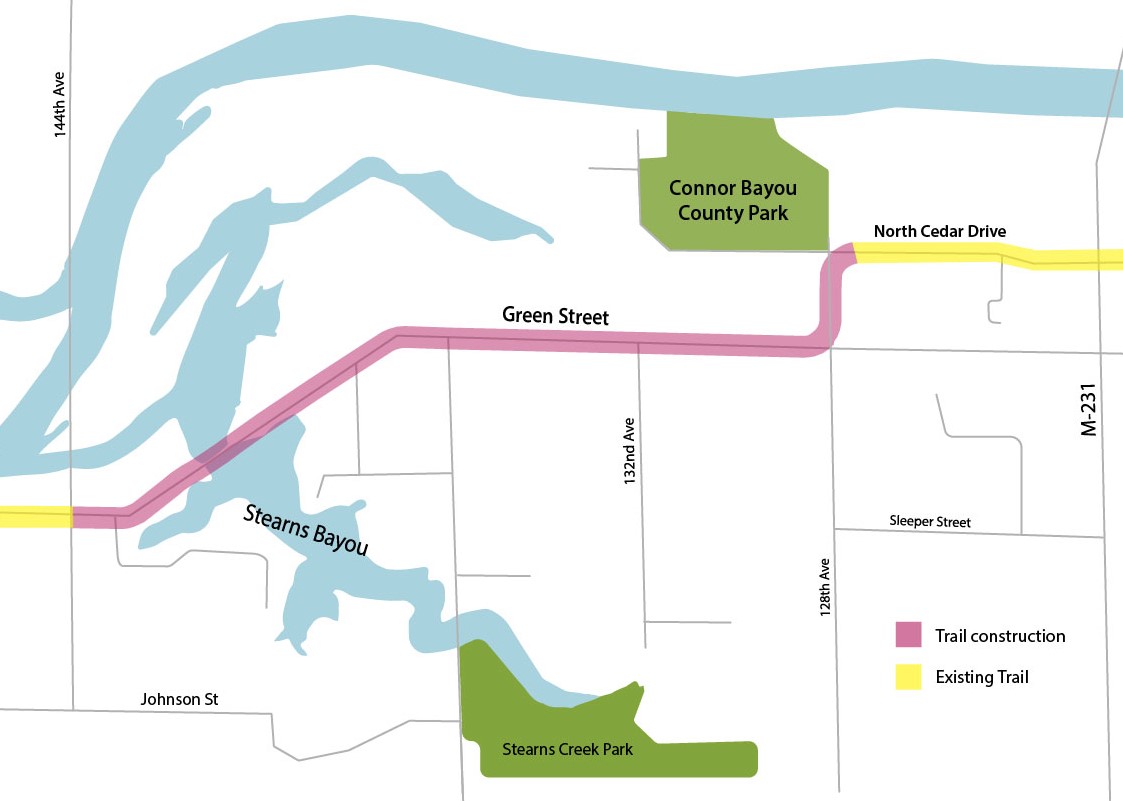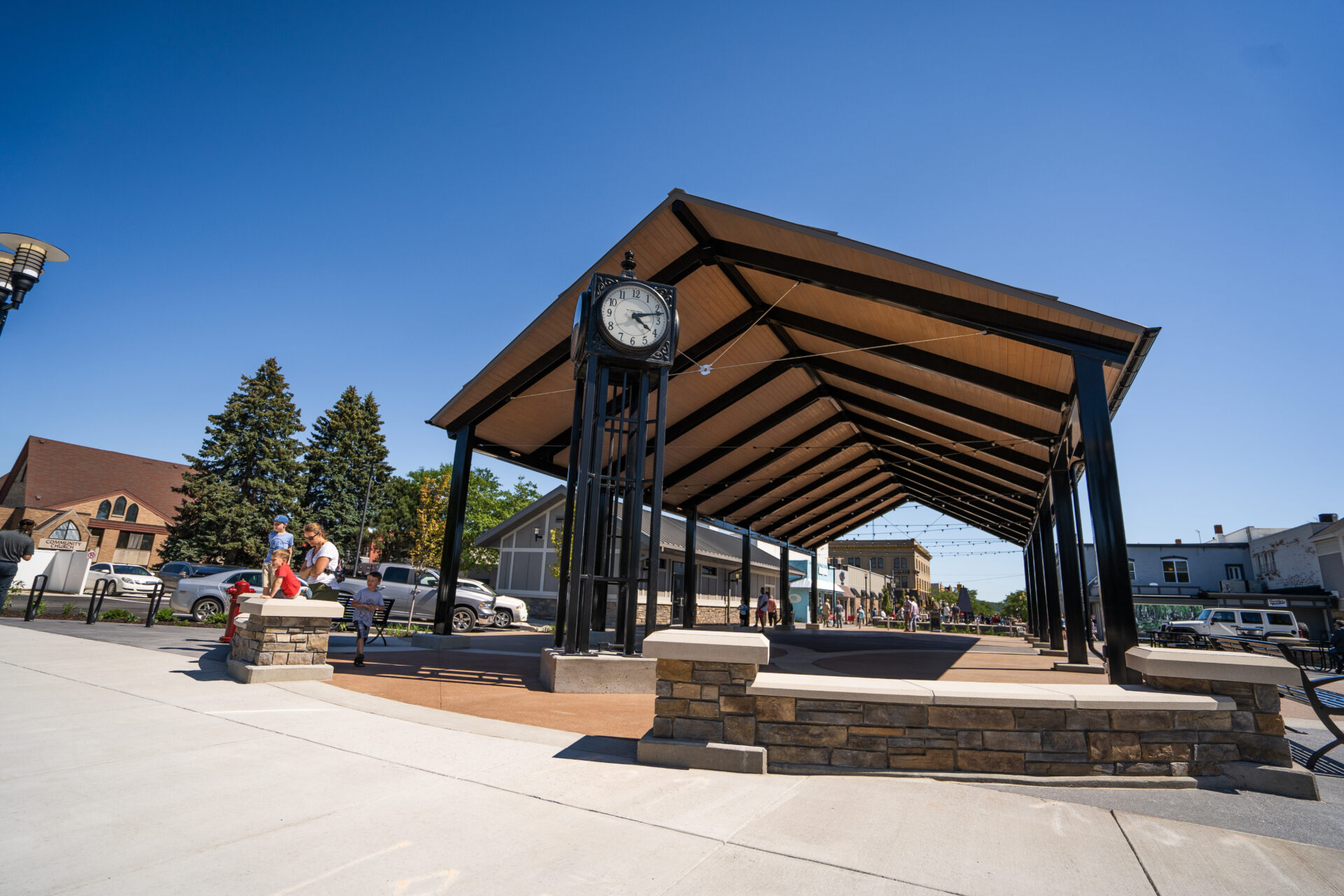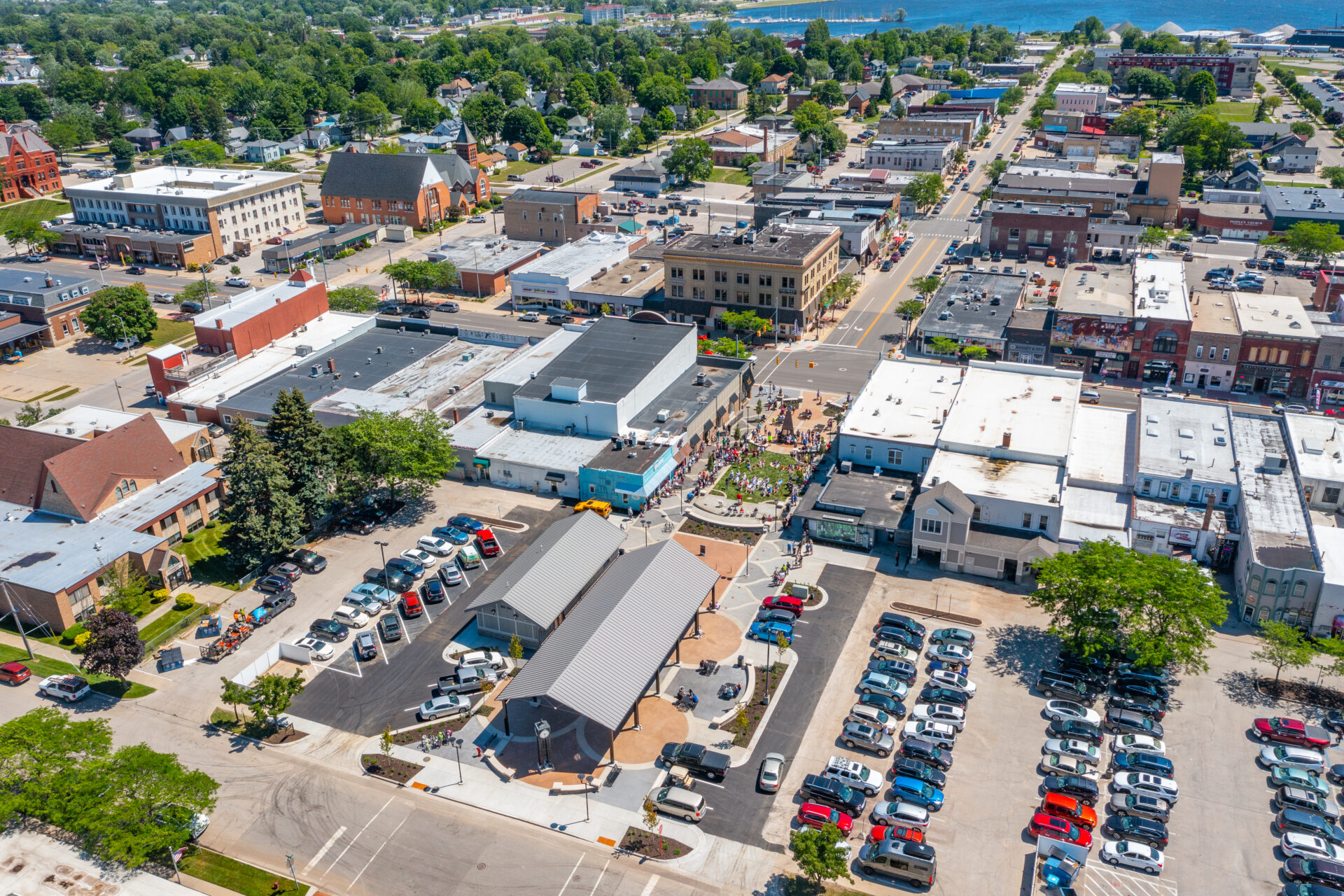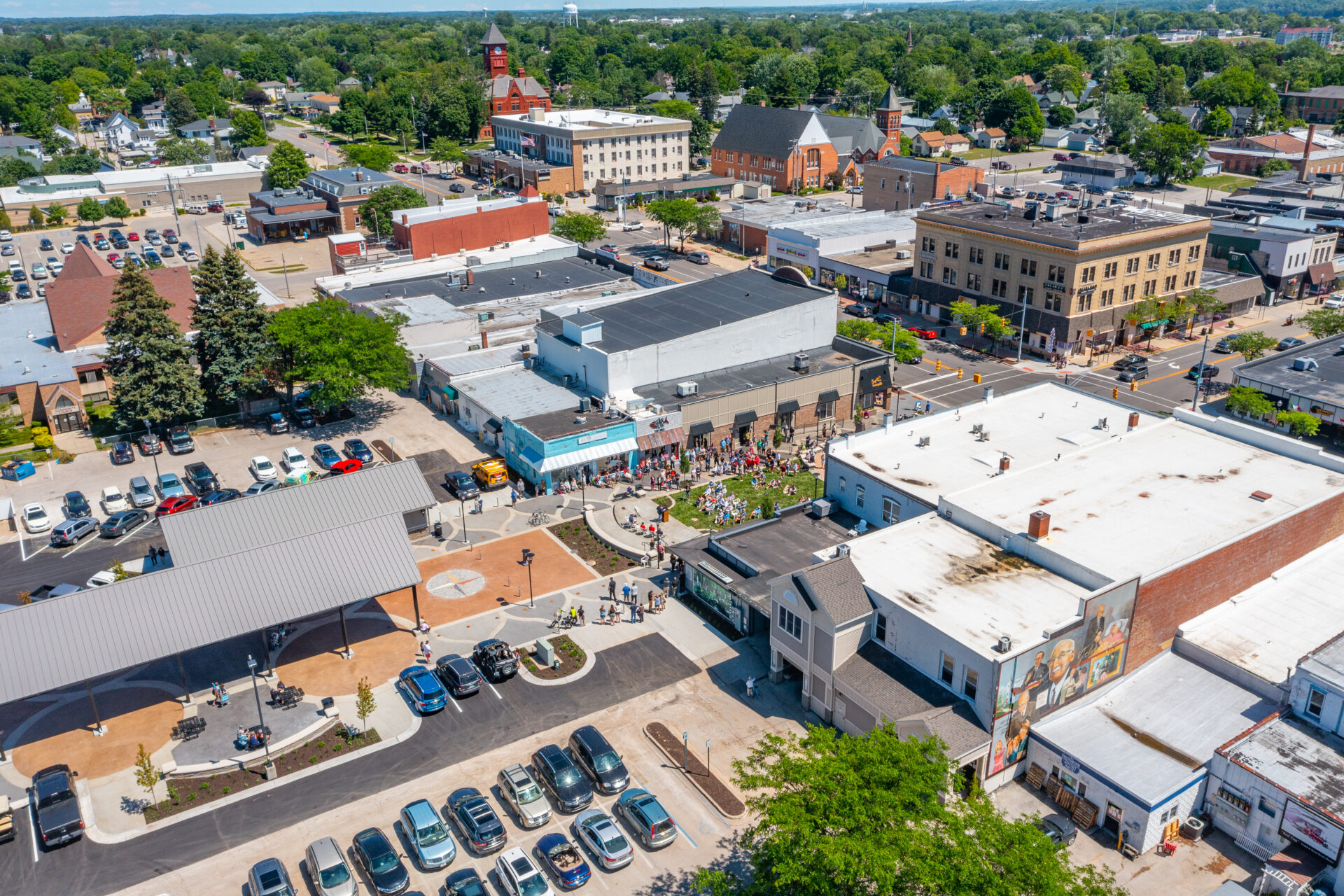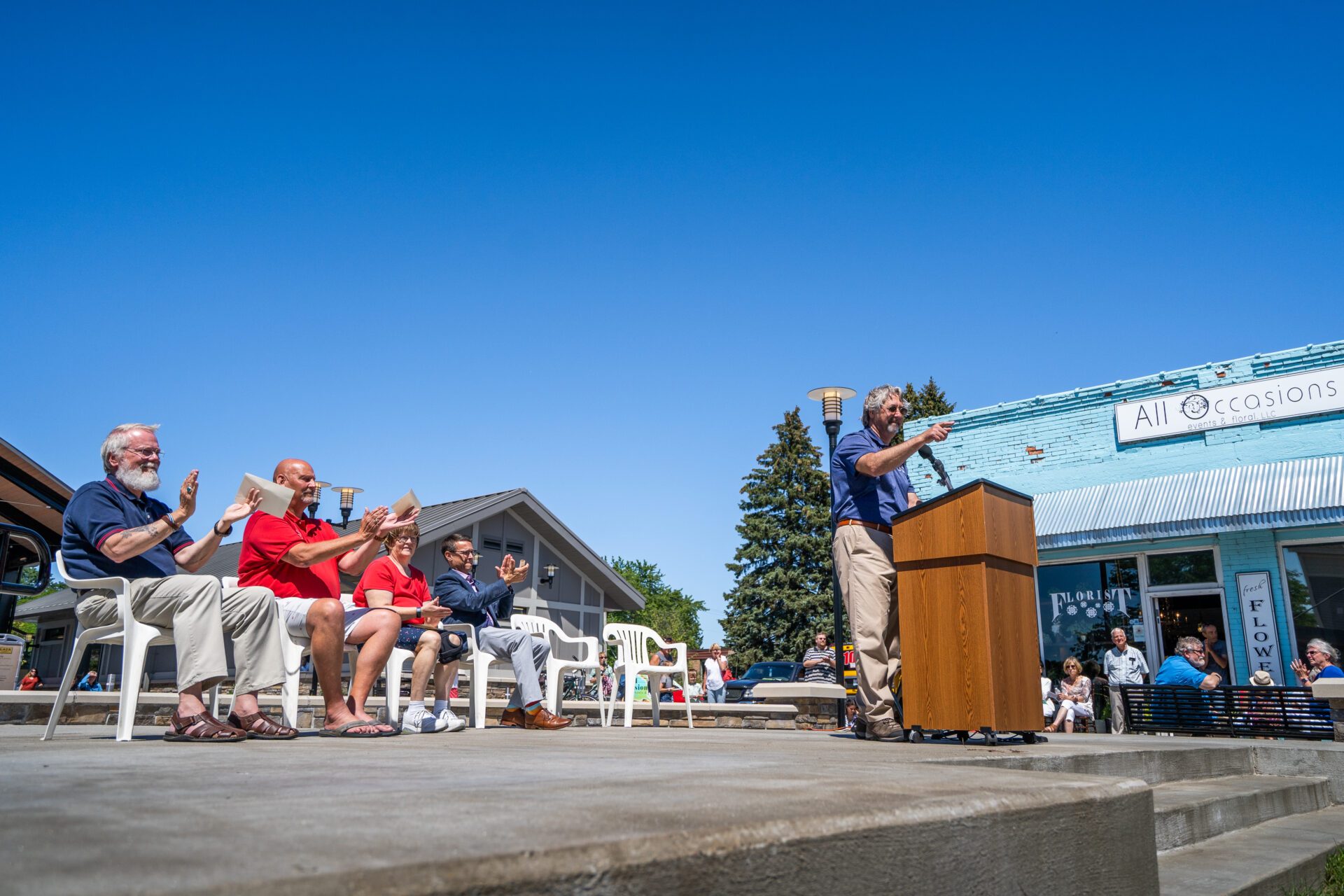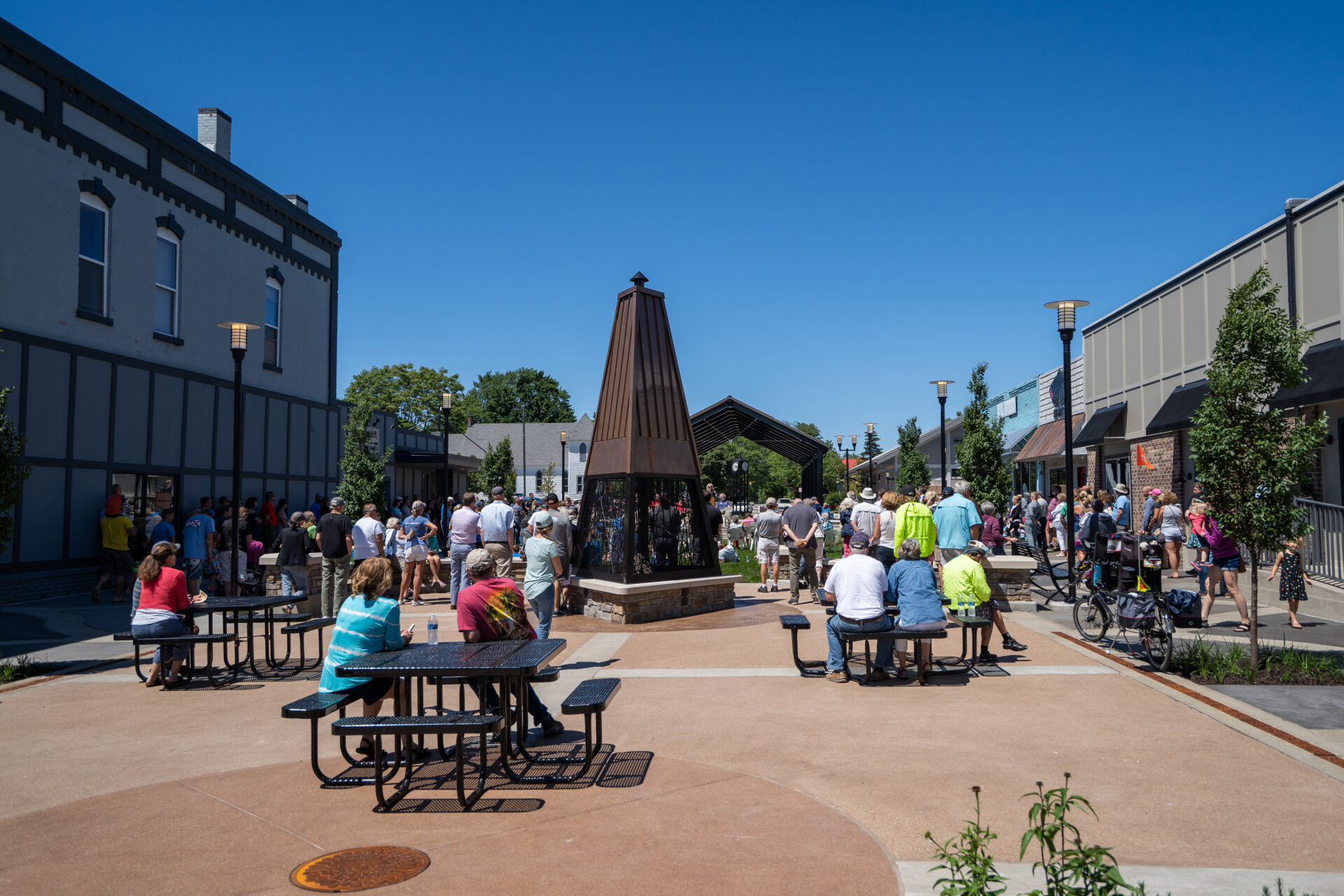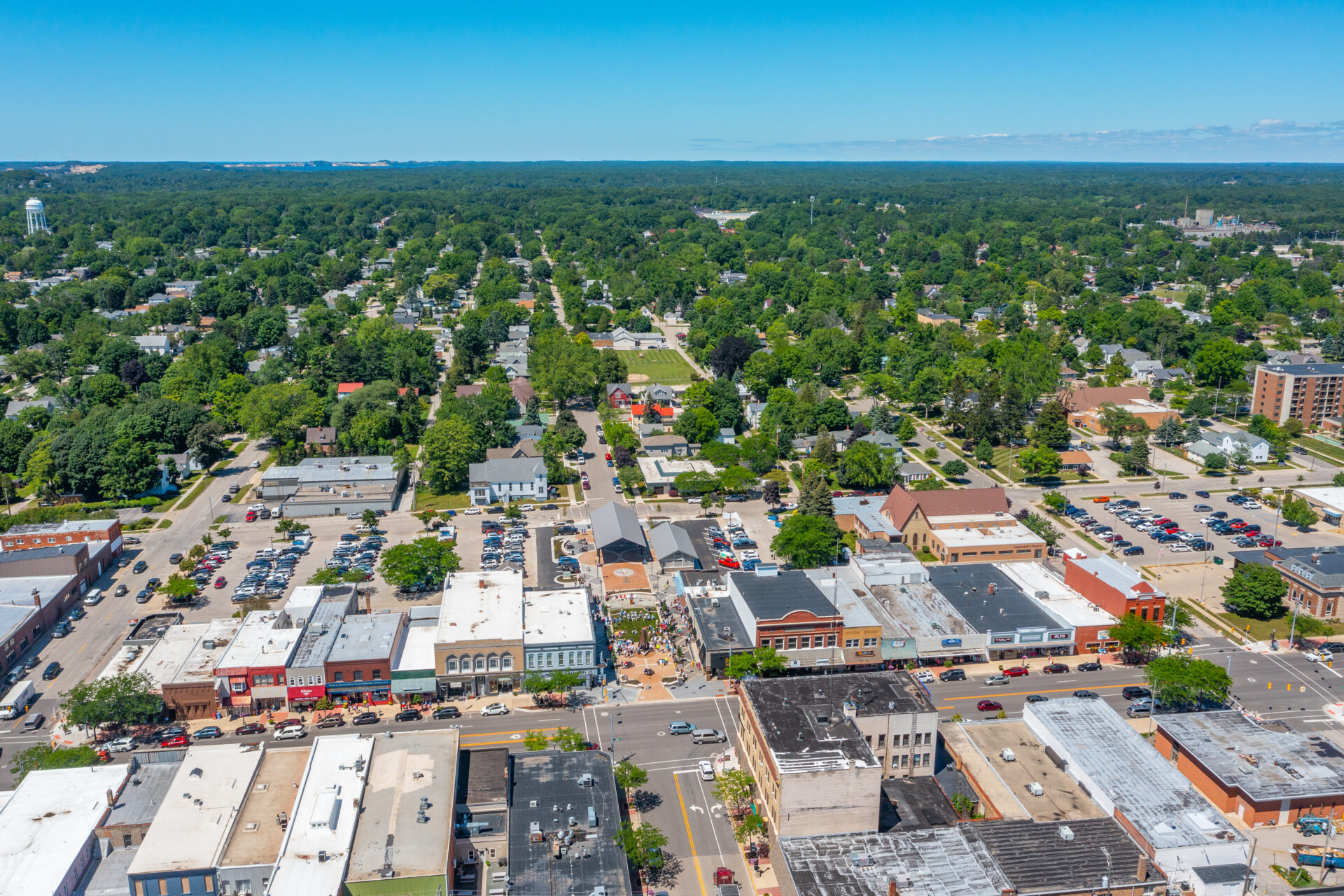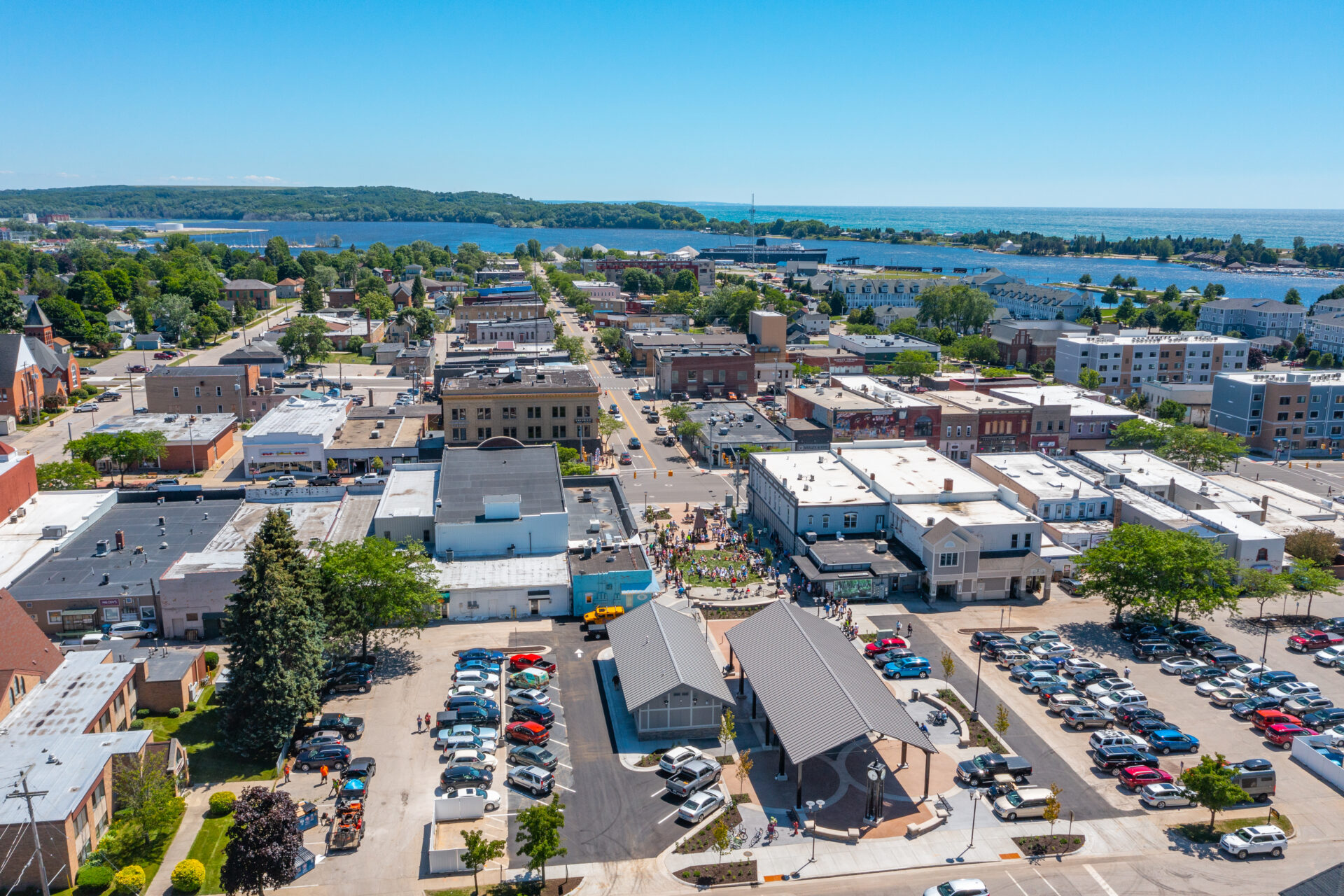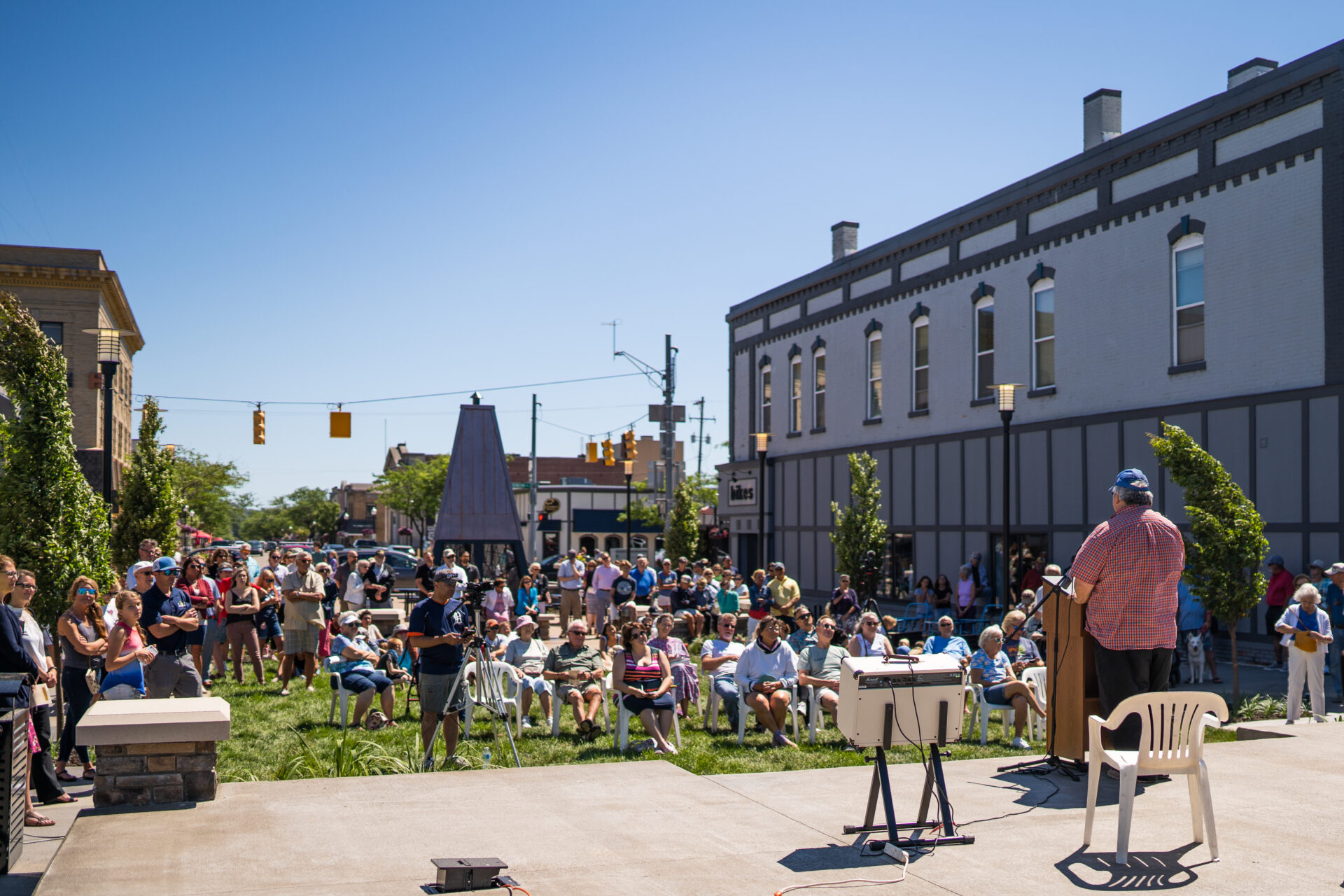The Village of Vicksburg and Prein&Newhof are honored as the Vicksburg Major Downtown Infrastructure Project was given the Outstanding Civil Engineering Achievement Award by the Michigan Section of the American Society of Civil Engineers (ASCE).
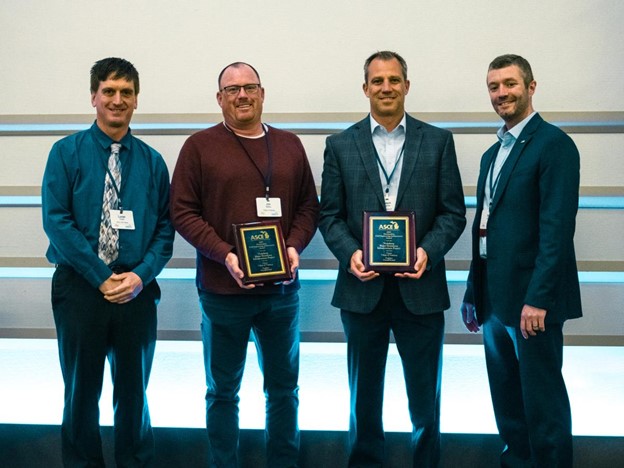
The enhancement of downtown Vicksburg is getting attention for all the right reasons. This extensive project, which also won the Southwest Chapter of the Michigan American Public Works Association’s (APWA) Outstanding Civil Engineering Award, involved transforming downtown Vicksburg’s infrastructure and gathering spaces.
It began with the Village of Vicksburg needing to replace its existing 80-year-old water and sewer lines that ran down Main Street. In conjunction with these major $9 million infrastructure improvements, Vicksburg took this opportunity to further develop and implement a plan to bring people to the heart of its village. Prein&Newhof Project Managers Jason Washler, PE and Mike Schwartz, PE, along with their team of civil engineers and landscape architects, worked with Village leadership to form a group of next-generation business owners to help steer the proposed improvements plan. The group wanted the downtown area to be a place for people to walk and stay, not simply drive through.
To accomplish this goal, Prein&Newhof redesigned the downtown area’s Main Street for one-way traffic with on-street parking. The plan called for wider sidewalks and a plaza area at a midblock sidewalk crossing to provide more space for people to congregate. The design also included refurbished pedestrian streetlights, redesigned traffic signals, charging stations, planter beds and pots, underground irrigation, street trees, enhanced crosswalks, and new right-of-way furniture (benches, trash receptacles, bike racks, tables, and chairs). Oswalt Park, located on the corner of E. Prairie and Main Streets, also needed refreshing. This was tied into the infrastructure construction work on Main Street and greatly expanded the downtown community gathering space.
The results of this multifaceted award-winning project, combined with another major development project in Vicksburg at the Mill of South County, are expected to help the Village continue to grow and blossom by stimulating the local economy and attracting a new workforce to the area for years to come.
